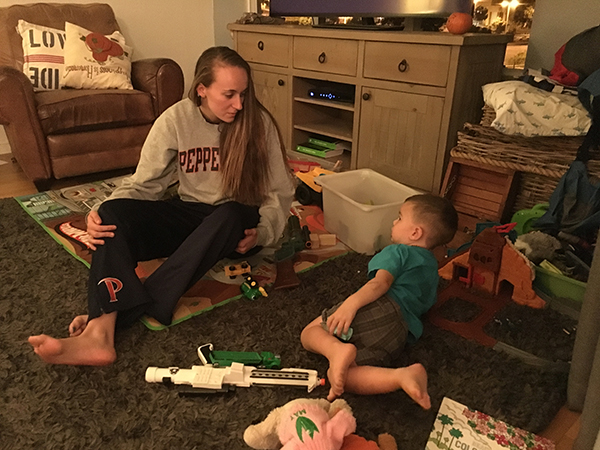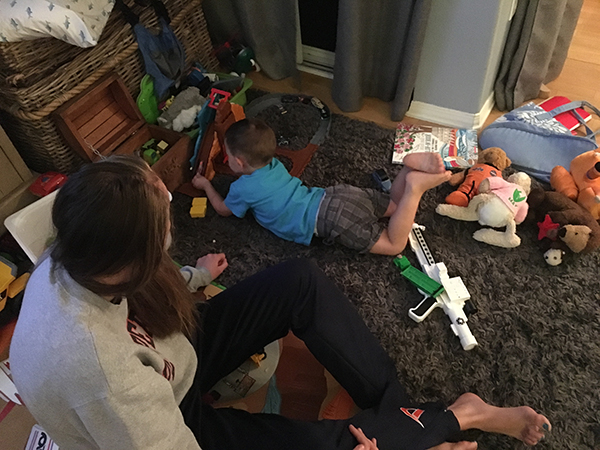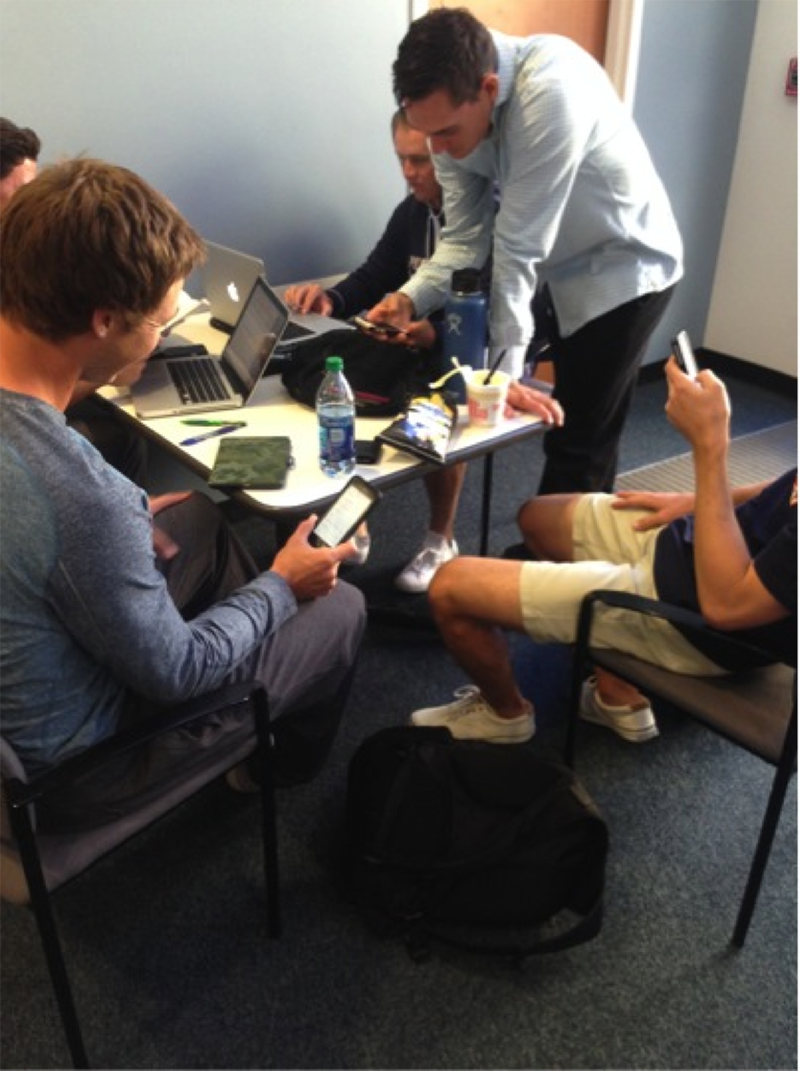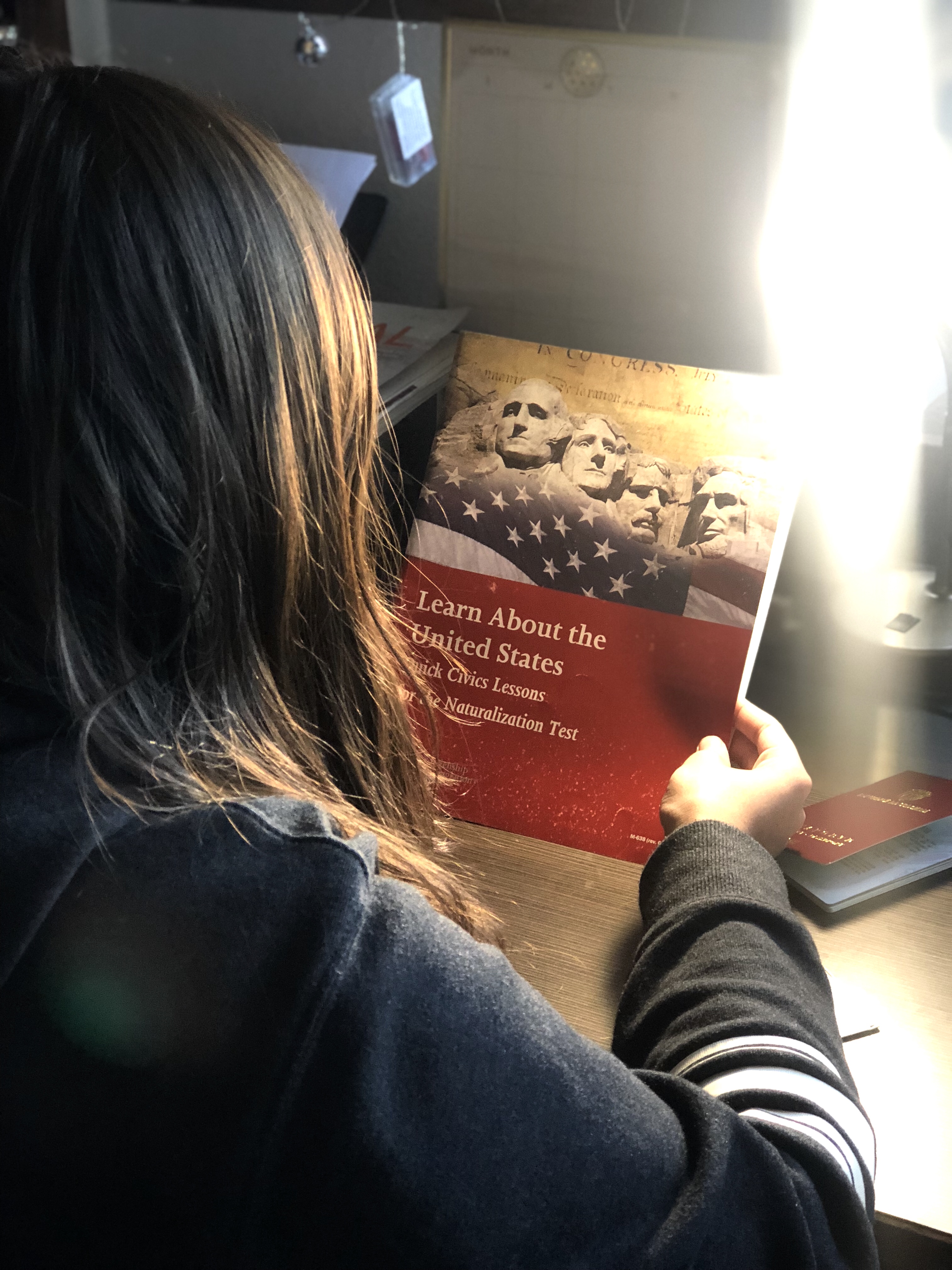
Just as Pepperdine students are known for being busybodies due to “fear of missing out,” faculty and staff members with young children are working hard to balance their professional and family lives in order to meet the needs of their students and their kids.
Pepperdine University offers faculty housing that is located on the same mountain as the school. At least 50 small children live in housing next to the Drescher Graduate Campus, according to a couple of families who live there. With no regular on-campus daycare options and many highly qualified students looking for work, students living on campus have a unique opportunity to get to know faculty through babysitting. Pepperdine’s Human Resources and the faculty Women’s Committee are trying to enhance the life balance for faculty and staff with young families.
“I think the campus has a really strong foundation of nourishing and nurturing the students who attend and the kids whose parents work here,” said Jamil Macias, assistant director of Marketing and Sales in Athletics. “Everyone is so family-friendly, and when the kids are on campus for an event or a game they are looked out for. The resources provided to the kids are so plentiful and genuine at the same time. When it comes to hiring a student to look after your children, it’s not so much a transaction or a service being offered because of money, but more so of a goodwill in the student’s heart.”
Macias has been a part of the Pepperdine community since 2008, when he arrived on campus as a student. He tutored the children and teenagers of a Pepperdine family in multiple subjects. From a student to an employee working in Pepperdine’s Athletics Department, he said he believes that the university will continue to be a community that embraces kids.

“This campus is made up of people who want to support each other and see each other succeed,” Macias said. “Whether you’re a student or faculty member, you’re surrounded by others who want you to help — it’s comforting.”
While many students have rigorous classes and part-time jobs, those who do have time often provide childcare for multiple families on campus. Undeclared sophomore Kim Jacobs said she began babysitting for one family during her freshman year and has become “a regular” in the faculty housing neighborhoods.
“Once I established trust with one family, my number was passed around the neighborhood,” Jacobs said. “I’ve always looked over my younger cousins so this is nothing new. It’s actually pretty refreshing to spend a couple hours a week with kids — they’re simple, energetic and fun.”

Other students, like Pepperdine alumna Jessica Wilson, became a regular babysitter because she lived in staff and faculty housing while attending Pepperdine and has known many of the children since they were newborns. Her parents are Marty Wilson, head coach for the Men’s Basketball team, and Mayra Wilson, an executive assistant for Pepperdine’s investment office.
“I would babysit about twice a week,” Jessica Wilson said. “I also had a part-time job on campus, so I was not able to watch the kids as often as I could. However, during the summer I would babysit about four times a week. Sometimes I would even babysit two different families in one day.”
Unlike many female faculty and staff members, Mayra Wilson did not work until her two kids, Jessica, 22, and Jaylen, 20, were in middle school. She said she “felt weird” asking others to watch her children and at times she felt alone because she did not have help when her husband was at work. The Wilsons try to provide couples with babies the assistance they need.
Mayra and Marty Wilson are notorious for volunteering to babysit children to help young parents. Even when they previously worked at schools like the University of Utah and University of California Santa Barbara, they have always welcomed others to their home and lent a hand to young mothers and fathers, according to coaches and former players.
“I think it stems from the fact that I didn’t have help,” Mayra Wilson said. “So I try to help those young mothers because I remember how difficult it was to not have breaks.”
Pepperdine’s Human Resources and the Women’s Committee are trying to make it possible to have those breaks Wilson spoke about. Dean of Seaver College Michael Feltner said employees with children can receive a financial assistance grant known as the Dependent Care Grant Program.
“It is an important benefit,” Feltner said. “It represents a significant advancement in the university’s support of faculty with young children. The recent bring-your-child-to-work day program implemented by Human Resources demonstrates the value the institution places on family and creating a family-friendly campus environment.”
Although there appears to be a surplus of highly qualified students who can babysit, the majority of them are busy with school and extracurriculars and do not have the time. Faculty and staff are faced with challenges — like finding the time to research, create lecture plans and grade — on top of being a parent.
“The balancing is hard for them and sometimes for us (the division),” said Ken Waters, divisional dean of the Communication Division. “It’s interesting because it’s not just the women, but some of the men also have to juggle things.”
Waters said the Communication Division is very supportive and takes into account the professors’ needs when creating schedules for an upcoming semester.
“We are very deliberate in how we prioritize classes,” Waters said. “They have to be staggered in such a way that, first and foremost, students can graduate in four years and second, that professors with young kids have that flexibility.”
Waters said the cost of living in Malibu, and California in general, with a family is tough for faculty and staff. Those who are parents have to be strategic in planning their days since traffic is often another issue they face. He has had to hire many new faces due to professors moving out of the Ventura County and Los Angeles areas.
Waters said he believes that the Women’s Committee, lead by Mathematics Professor Kendra Kilpatrick, has helped make the balancing act more manageable for professors to have time for work and family.
The Women’s Committee are a group of Seaver undergraduate faculty members that address academic issues of particular relevance to females. The committee addresses the needs of female faculty, whether it involves research or finding resources like childcare.
“We started a mentoring program for female faculty,” said Kilpatrick, who recently received a promotion to associate dean. “We have placed five women (each) in a mentoring pod. It’s a sort of group mentoring and we address work life balance, how to juggle taking care of yourself, family and other responsibilities.”
Kilpatrick said she enjoys the balance of work and family and appreciates living on campus. Many faculty members think the same way.
“It’s great to be on campus because there are lots of families and kids,” Kilpatrick said. “We often share babysitters, which is great. It’s like (what) they say the neighborhoods in the ‘50s were like.”
Ryan Weisenberg, the head coach for the Women’s basketball team, and his wife Lyndsey Weisenberg, a coach for the Women’s volleyball team, said living on campus with three kids all are under 10 years old has its pros and cons.
“Now that it gets dark so early, we have actually said to the girls, ‘When the street lights come on, it’s time to come inside,’” the Weisenbergs said. “It is so fun living so close to our friends and our crew has a pretty constant group text going for when any of us have a last-minute need.
Now on the other hand, there is a lack of privacy here that you might not find when living on a typical street somewhere in the suburbs.”
However, Ryan and Lyndsey Weisenberg said they believe that the pros to raising their family on campus outweigh the lack of privacy they feel once in awhile. They are able to pursue coaching and know their kids are in good hands thanks to the support of their neighbors.
“When you live around people who truly care about you and your family, you want them to know your business,” Lyndsey Weisenberg said. “We want to celebrate the highs together, and console each other when there are lows. ”
Associate Director of Residence Life Brandon Farmer, his wife Nicole Farmer and their three children live in the center of undergraduate housing. While their neighbors are students, they said they do not feel isolated because students visit often and fellow faculty and staff members are always willing to lend a hand when it comes to carpooling and babysitting. Nicole Farmer said she greatly appreciates what the Women’s Committee has accomplished.

“The Women’s Committee has done wonders in making it more manageable for faculty,” Nicole Farmer said. “They send weekly emails out. We have carpools for school and extracurriculars, and we encourage each other. It’s become so helpful.”
The faculty and staff members continue to find ways to support one another while working at the only four-year college in a 75-mile radius that does not have a daycare center for children located on or near campus. Even smaller schools like California Lutheran University in Thousand Oaks, which has approximately half the student enrollment than Pepperdine, offers childcare for babies and children. Pepperdine’s neighboring colleges and universities also offer the dependent care grant on top of childcare services. Currently there are no advancements being made to build a childcare center on campus.
Kilpatrick said logistically it would be hard to have an on-campus daycare due to limited space, licensing issues and other issues that can come up when creating a daycare center in Malibu, but the committee started providing self-funded childcare for all faculty meetings. Last year, they worked with the divisional deans to provide faculty childcare during the graduation ceremony.
Melissa Mallari completed this story in Dr. Christina Littlefield’s fall 2015 Jour 241 class.



